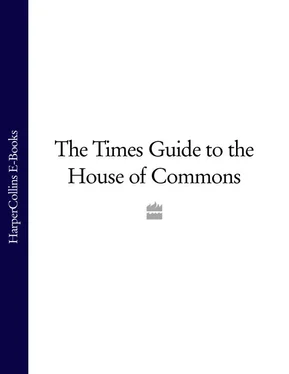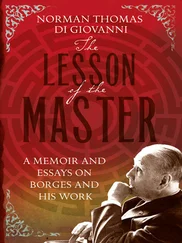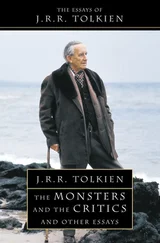And so, like the old politics, the senior mass medium endured. Just as there was no decisive breakthrough for the third party, there was none for multichannel or the blogosphere. Had television turned the election into a beauty contest? By the end it appeared more likely that its debates had found a new way to scrutinise not only character but policy and that those of each contestant had been found wanting. The Friday after polling day, Sandy Toksvig, chairwoman of Radio Four’s The News Quiz , made the Nick Clegg/ Britain’s Got Talent comparison explicit. We saw someone new, liked what we heard but, in the end, decided to vote for someone else. At least, however, by then we knew whom we were voting for. After a foggy start, it was a good election for television.
It will never be the same again
Daniel Finkelstein
Executive Editor
On Friday, May 7, 2010 David Cameron, the Leader of the Opposition, woke from a very short night’s sleep and made an historic decision. It was one that would propel him into 10 Downing Street within five days and would change British politics for ever. He was, he determined, going to attempt to form the first coalition government since the Second World War.
Mr Cameron had long thought a hung Parliament rather likely. The number of seats that the Tories would have to win to have an overall majority was daunting. But his team had not, as Nick Clegg’s Liberal Democrats had, spent a great deal of time agonising over what to do if it actually happened. Mr Cameron did not unveil a carefully developed plan. He acted on instinct.
But it was not just Mr Cameron’s instinct that changed history. It was also the maths and Mr Clegg had always believed that the maths would be crucial. On May 7, the cold fact was that the Liberal Democrats and the Conservatives could together form a government with a majority of more than 80, but the Lib Dems and Labour would not have a majority even if they voted as a single block on everything.
So just before lunch on Friday, Mr Clegg arrived back at Lib Dem HQ and announced that he was sticking to the plan he had formulated before the election, one designed precisely for the sort of numerical position he was now in. He regarded the party with the largest support as having earned the right to seek to show that they were able to govern in the national interest. And that meant opening talks with the Conservatives.
What Mr Clegg had almost certainly not expected was Mr Cameron’s response. The latter had quickly won support for coalition from his team, starting with his closest ally, George Osborne. Working with his adviser, Steve Hilton, he prepared a statement in which he said that while a mere pact with the Lib Dems was possible, he wanted to make a “big, open and comprehensive offer” to the third party. His aim: full coalition.
The negotiations began quickly, with the teams meeting that afternoon at the Cabinet Office for an initial session. Mr Osborne selected the venue. He wanted the Lib Dems to be able to see power out of the window. And so, looking over the Downing Street garden and in a sweltering room where the central heating had broken, the teams began to talk. Danny Alexander, David Laws, Chris Huhne and Andrew Stunnell for the Lib Dems quickly came to see that Mr Cameron was serious. They realised that his negotiating team – Mr Osborne, William Hague, Edward Llewellyn and Oliver Letwin – had come ready to make big concessions. Perhaps they did not quite realise why. From the word go, Mr Cameron realised that he needed a deal, but he also saw the whole thing as an opportunity.
First, the necessity. The Cameron team thought that a minority government was a very grim prospect indeed. Having introduced unpopular measures to deal with the deficit, the Government could be turfed out at the worst possible political moment.
There was raw political calculation in this, of course, but also consideration of the national interest. A minority government would not survive for long. It would need, or be forced, to fight an early election, making it impossible to begin the difficult work that the next administration needs to undertake. So the negotiators found themselves in an ironic position. The Lib Dems wanted policy concessions but were politically nervous of a full-scale coalition. The Tories, whom everyone assumed would play it tough, wanted to make policy concessions so that a proper long-term partnership could be formed.
One issue remained difficult: electoral reform. The Tories were offering a free vote in the Commons on a referendum on the Alternative Vote and that was not enough. That, plus the emotional pull of Lib Dems towards the Left, sent Mr Clegg’s team talking to Labour. For a brief period a new Lib-Lab arrangement appeared a real possibility. But it was brief. Labour did not have the heart for it. Labour’s negotiations – informally over the weekend and formally on the Monday after Gordon Brown announced his intention to resign – were half-hearted. They were not prepared to concede much, underestimated the progress the Lib Dems had made with the Tories, and thought that the numbers did not really stack up anyway.
It was also brief because the Tories made a big offer – a whipped vote to have a referendum on AV – and this offer, skilfully guided through the party in the hours after Mr Brown’s departure had scared the Tories into imagining a Lib-Lab deal, brought Cameron not merely the premiership, but more besides: a great opportunity.
Finding it hard to gain even 40 per cent of the vote, the Conservative Party has, for years now, been threatened by the possible emergence of a unified progressive Left. Blair advisers such as Lord Mandelson and Lord Adonis have long seen this. They regard the split in the Left between Labour and the Liberals that took place at the beginning of the 20th century as having ushered in a Conservative century. They are probably correct. That split has been a very important reason for the election of Tory governments, particularly in the past 40 years.
If the Conservatives had won a small majority, it is not hard to imagine them being swept out in five years by an alliance, either explicit or implied, of Labour and Liberal Democrats. Something like that happened in 1997 and produced the Blair landslide. Now a combination of the new maths of the Commons and Cameron’s boldness disrupted this and in doing so, changed politics for years. The Liberal Democrats have been picked up and put down in a different place, partly by Mr Clegg of course, but largely by a Cameron offer of partnership. The anti-Conservative majority is, in an extraordinary political coup, no longer an anti-Conservative majority. Things are more complicated now.
The second part of the opportunity relates to Mr Cameron’s own party. Five years of work to rebrand the party did not change perceptions as much as his team had hoped. But now this. Mr Cameron has the potential to lift himself and the party above normal partisan politics.
And so, after some of the most dramatic days in modern politics, David Cameron found himself waving to the photographers outside No 10, flanked by Nick Clegg. But he has made a huge gamble. Could this move split his party? Might the Liberal Democrats prove not merely prickly partners, but impossible ones?
Unknown, unknowable. But this can be said with certainty. Politics has changed for ever.
Meet the Class of 2010, the new politics in person
Rachel Sylvester
Times columnist
There is a black-belt karate expert, a female football coach, a Mormon, a former television presenter and a bestselling author who has had the film rights to his life bought by Brad Pitt. A total of 232 new MPs were elected for the first time on May 6, 2010, including 147 Conservatives, 67 Labour members, 9 Liberal Democrats and the first representative of the Green Party, Caroline Lucas, who won in the Brighton Pavilion constituency.
Читать дальше












